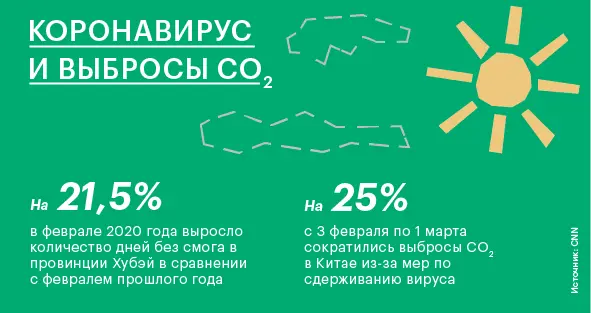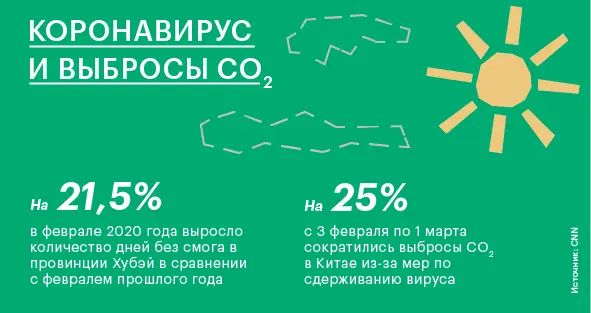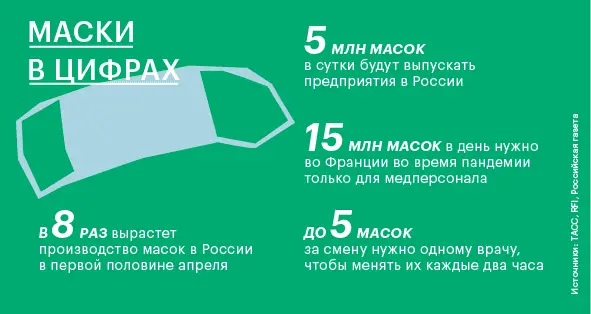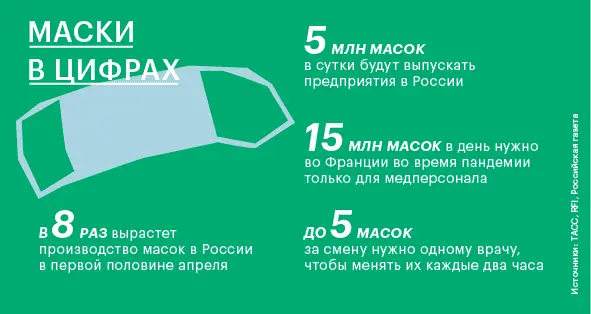Contents
The coronavirus is undoubtedly having an impact on nature. Inspired journalists and environmentalists are already calling what is happening an unprecedented action to improve the environment. But is it really all that positive?
What’s wrong?
The coronavirus has hit the economy, people’s health, social ties and taken us into a new reality. To protect against the virus, people began to use masks, gloves, wipes and sanitizers. And here, from the point of view of ecology, a set of problems immediately arose: production volumes are growing, the duration of use of such protective equipment is on average several hours, after which it is difficult to dispose of them.
Medical waste, which includes most protective equipment, should be disposed of according to a separate protocol. If a person is not just in self-isolation, but does not exclude the possibility of being a carrier of the virus, then he should stop separate collection and throw away all his waste as mixed, packing it as much as possible.
Some factories have suspended their work and stopped supplying recyclable materials to recycling plants. As a result, the coronavirus has the potential to cause significant damage to the recycling infrastructure.


The use of medical masks deserves special attention
Expert opinions are very contradictory – is it worth wearing masks, if so, in what cases, which ones and how often should they be changed, does it make sense to buy a mask from a fashion designer, or is it useful at best for a beautiful photo on social networks? Meanwhile, the coast of Hong Kong is already littered with disposable masks. This is especially dangerous for animals, since masks are made from non-woven synthetic materials, and marine life takes them for food. The environmental impact of masks, as well as gloves, wipes and empty sanitizer containers, has yet to be assessed. However, it will be possible to do this correctly only when the pandemic is over.


How to throw away the mask correctly?
Respiratory masks are class B medical waste that poses an epidemiological hazard. Before disposal, such waste must be decontaminated, as masks and gloves can carry viruses. After the start of the pandemic, Rospotrebnadzor recommended that our countries collect used medical masks and disposable gloves in a separate bag, pack them hermetically and dispose of them with household waste.
More disposable
The challenge for many countries now is to keep people safe and curb the spread of the pandemic. In pre-coronavirus times, taking care of nature was easier — you could pour coffee into your coffee mug, walk to the store with a reusable bag, participate in environmental campaigns, and use your food containers in cooking. In the new reality, these practices will have to be reconsidered: for safety reasons, stores and cafes are temporarily restricting the sale of food and drinks in the dishes of buyers, environmental promotions have been canceled, retailers are using more packaging materials, and the e-commerce industry is taking unprecedented measures to ensure safe delivery. All this will also entail an additional burden on the environment.
Buckwheat and stew party
Stocking up during self-isolation and in case of strict quarantine is a matter of personal comfort. But if you do not like buckwheat, have never eaten stew and hate condensed milk, do not succumb to general hysteria. You will bring these products home and you won’t know what to do with them. Buy your usual food with a margin of 2-3 weeks.
If suddenly a small strategic warehouse of buckwheat and stew suddenly formed in your home, do everything so that these products do not end up in a landfill. For example, look up recipes on the Internet and throw a party for your family with unexpected dishes.
It is important that the “reserves” made do not end up in the trash. For example, Lamoda, along with other companies, is already participating in the discussion of a program for the redistribution of products after panic buying of employees to charitable foundations.
Panic buying
From late February to early March 2020, shoppers around the world have stormed supermarkets, sweeping toilet paper, soap, detergents, pasta and other non-perishable items. Demand for weapons has also increased in the US and Australia. The authorities of many cities had to issue an appeal to buyers with a request to stop the hysteria and stop the avalanche of purchases – this does not help in the fight against the pandemic.
The impact of the coronavirus on the environment is still difficult to assess. On one side of the scale is a truly unprecedented environmental action – reducing emissions from transport and stopped production, reducing the consumption of electricity and water due to the closure of shops and offices. On the other, disposable protective equipment, additional packaging, panic buying, and the risk to many green projects of not surviving this crisis.
- Start collecting waste separatelyif the infrastructure near your home allows. During the quarantine period, going outside to throw out the trash becomes a full-fledged leisure. So if before you just emptied the trash can in the stairwell, now you have an excuse to take a walk to the nearest separate collection point.
- Support green initiatives. Now is a very difficult period for many businesses and projects, including environmental ones. It’s great when a clothing manufacturer can quickly reorganize and launch the production of high-quality masks, and perfume factories and alcohol factories can start producing sanitizers. Alas, not all businesses are so flexible. However, by buying goods from green producers or by supporting nature conservation funds, you will help the planet overcome the consequences of the coronavirus.
- Figure out your closet. Set aside boring things in good condition so that later they can be donated to charitable foundations or for recycling (this can also be done at 15 Lamoda pick-up points in Moscow as part of a joint project with the Second Wind Foundation).
- Explore delivery services. During the spread of the virus, it is important to stay at home, so many retailers, including Lamoda, have expanded their assortment by adding popular food products with a long shelf life. This will allow you to order the widest possible range of necessary products from one seller and not increase the number of deliveries.
- Learn more about ecology. Watch documentaries about ecology, figure out how to distinguish eco-bio-organic products from ordinary ones (for example, using the Ecolabel Guide app), take an online educational course to make your life greener.
- Look at your habits in a new way. Maybe now is the perfect time to get into the culture of responsible consumption: choose a reusable mug for the future, a shopper bag for shopping trips, start planning a menu for the week or have a “meat-free day”, try organic cosmetics and much more. Coronavirus will definitely end, but new habits will stay with you!










